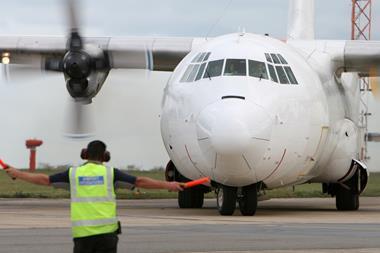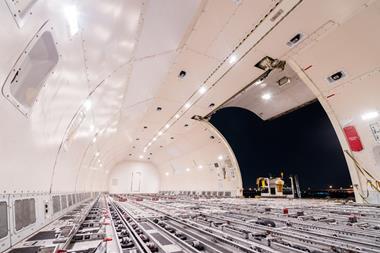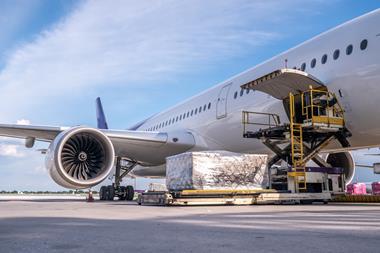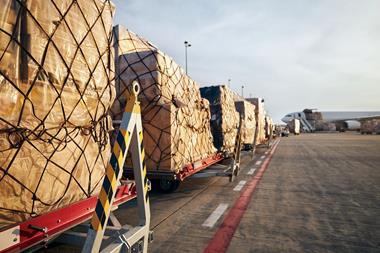Seko Logistics has said many of its manufacturer clients are "pivoting" between seafreight to airfreight and "leveraging air capacity as an option when they can".
The logistics provider said growth in cross-border e-commerce is increasingly pushing manufacturers to use airfreight, as seafreight capacity struggles to cope with pressure.
The company also noted that some of its clients are investing in future airfreight capacity based on their estimated sales.
Brian Bourke (pictured), chief growth officer at Seko, explained: "[Manufacturers] want to be the company that has that commodity or product or skill in inventory, ready to ship domestically in their home market. A lot of these manufacturers have deals with retailers that include shelf space. If they are not able to fulfill those initial points of sale, they lose that shelf space and so it's really about them pivoting and investing in future sales at this point to make sure."
Bourke said that to serve its customers, Seko is using a mix of air cargo capacity from "freighter conversions, freighters aircraft from traditional passenger airlines, as well as passenger capacity that exists on international routes".
He added: "We are we working and actually running our own charters. The answer [to our customers] is yes to everything."
Bourke noted that the return of passenger services — and bellyhold capacity — is one of the "most efficient and easiest" ways that it is able to offer airfreight capacity to its customers.
"We will work with our airline partners, the charter brokers and cargo airlines, and a combination of all those to find the capacity that's needed to meet demand."
However, on some routes — such as US-Europe — it is more challenging to secure available capacity.
In these cases, Bourke said: "We will create capacity if we have to and that's just the nature of where we are as a market. But our preference will always be to offer passenger capacity."
Seko also noted that India's current coronavirus crisis has negatively impacted available bellyhold capacity in the Indian subcontinent area.
Chaminda Gunasekera, senior director-airfreight / e-commerce / network development at Seko Logistics, said: "When it comes to the subcontinent, there's a huge connection with Middle East, because of professionals working in the Middle East. They travel between the subcontinent and the Middle East and when it comes to cargo, it's mainly driven by passenger aircraft.
"So that's one of the challenges that the Indian subcontinent had recently where India had been hit by challenges in terms of Covid."
He continued: "We have to give the credit to some of the Middle Eastern carriers like Emirates and Qatar Airways — and even Turkish — because they have been maintaining certain flights [to and from] the Indian subcontinent."










